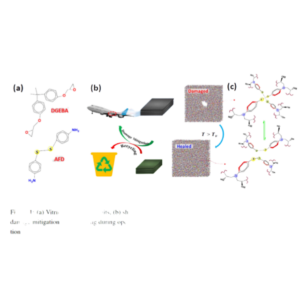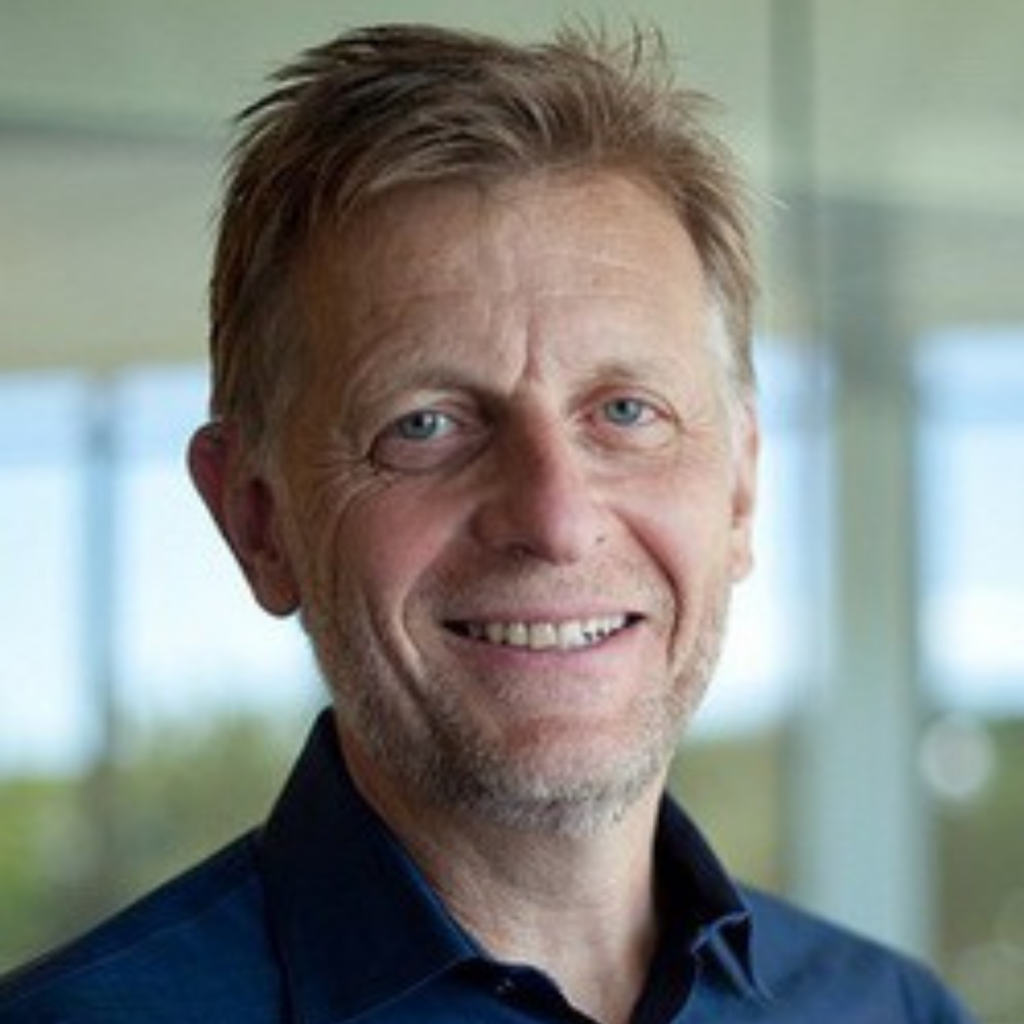A relatively new class of materials based on covalent adaptable networks (CAN), also referred to as Vitrimers, i.e., polymeric materials containing moieties that form reversible dynamic covalent bonds between chains, have the potential to enable materials innovation at several levels. These materials are strong and rigid at ambient temperatures, but when heated they flow like molten silicate glass. Accordingly, CAN provide novel and diverse avenues for materials manufacturing, they can be recycled and reshaped, they self-heal and are weldable, and they are well-suited for 3D printing. Beyond their advantageous processability, CAN allow for in situ structural conditioning and topological reconfiguration, and thus, exquisite property tuning and ultimately regulation. To-date, CAN are still poorly understood and the reaction kinetics involving the moieties connecting or releasing the polymer chains, are generally slower than desired.
The proposed research aims to develop a comprehensive conceptual framework for describing vitrimer behavior and advance molecular designs with the aim to characterize suitable Vitrimers and Vitrimer based fiber reinforced composites for structural applications. Of interest are controlling stiffness, strength, creep, recylcability and repairability of vitrimer solids for a wide variety of structural applications.
People
Funding

Funding: $75K (2022)
Goal: This research will lead to the development of a comprehensive research proposal to submitted to NASA, NSF, DoD and other relevant finding sources including industry related to Vitrimers and Vitrimer Composites for Sustainable Structural Applications
Token Investors: Anthony Waas, Ellen Arruda, Veera Sundararaghavan, John Kieffer, Henry Sodano
Project ID: 1036






